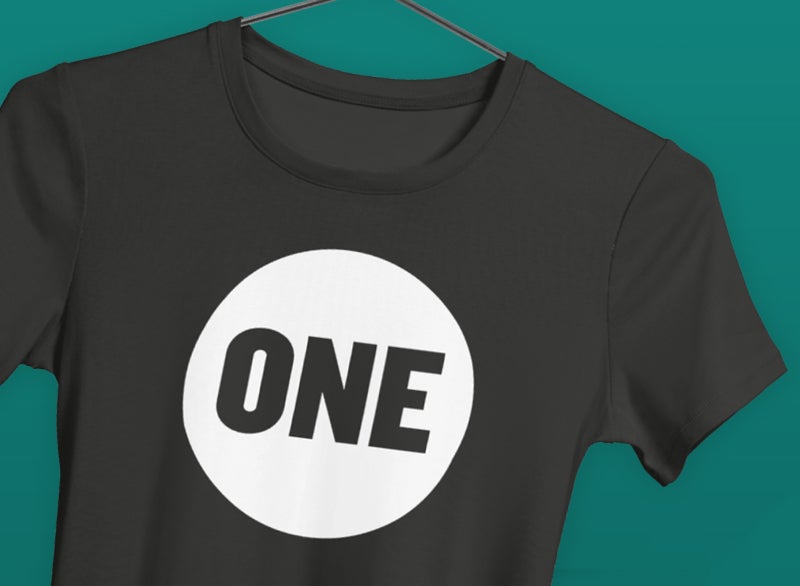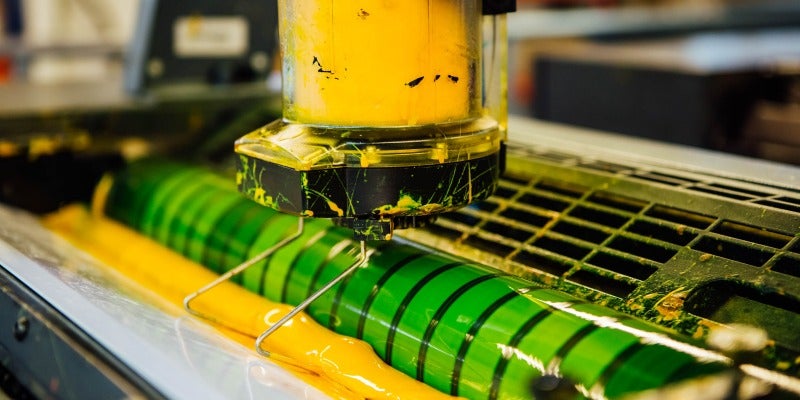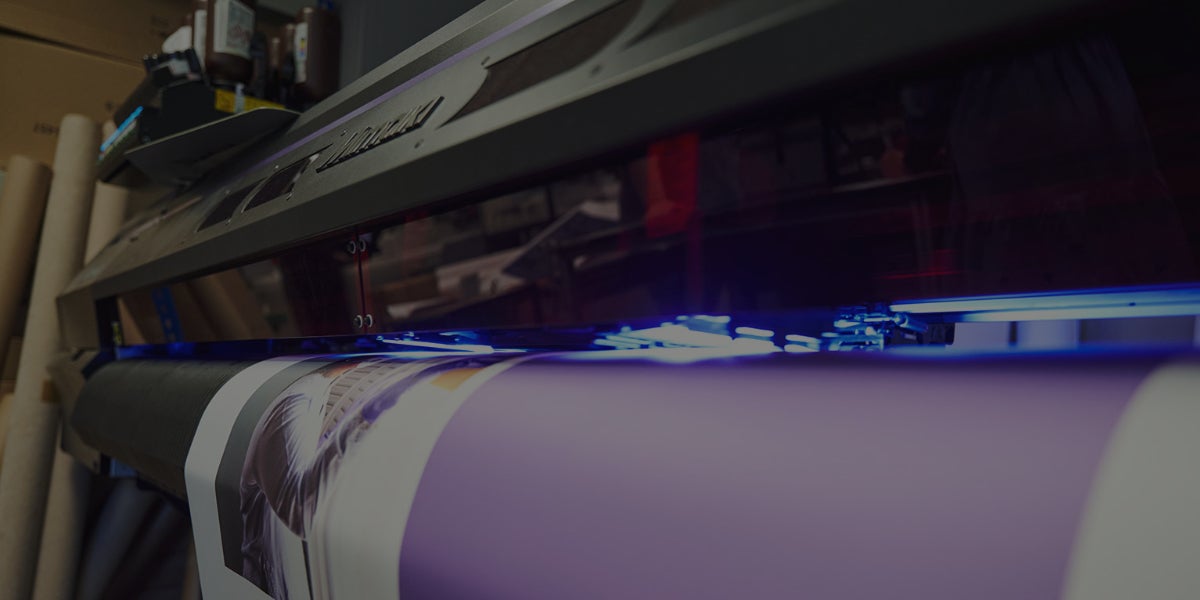When a company creates branded merchandise like printed mugs, pens, and t-shirts, it hopes to add value to its customers, boost brand awareness and improve customer loyalty. However, printing these items can have a significant impact on the environment, increasing carbon emissions, pollution and using the earth’s natural resources. This is often the case if the items are given away as freebies, ending up unused or in landfill sites.
Despite this, many improvements can be made to improve the sustainability of merchandise printing and ensure that they boost marketing without harming the environment. Here, we look at the principal issues and then what can be done.
Sustainability and merchandise printing - the issues and solutions
There are numerous reasons why merchandise printing can be challenging on a sustainability level. This includes the materials used, the dyeing or printing process itself, transportation, and potential wastage.
Materials
Many of the items used for merchandise are cheaply sourced and are often made from materials that aren’t sustainable, such as non-recyclable plastics, polyester, nylon or ethically and environmentally challenging cotton.
Like plastic, polyester and nylon use enormous amounts of energy, emit harmful chemicals, and come from non-renewable sources such as petroleum. They also take hundreds, if not thousands of years to decompose and can accelerate the problem of plastic pollution in our oceans.
Although cotton is a renewable resource, it can also cause problems for the environment. According to the WWF (World Wildlife Fund), its greatest impact is due to the use of agrochemicals, water consumption and the conversion of habitat to agricultural use along with water pollution, soil erosion and water contamination, not to mention unethical treatment of workers.

What is the solution?
Businesses should consider the lifetime and purpose of their merchandise first and foremost, making sure branded items are indeed useful to their consumers should be the main priority. For minimal environmental impact, choose recyclable plastics or fabrics made from hemp, linen, or silk. If choosing cotton, look for organic and from an ethical/fair trade sustainable source. Of course, recycled paper and cardboard are greener options as they come from renewable materials and can be easily recycled.
Printing, dyeing, and bleaching
It’s not only the materials themselves that can pose problems for the environment but the branding, dyeing or bleaching process too. Inks used for traditional printing are notoriously harmful to the planet because they’re based on petroleum, contain VOCs (volatile organic compounds) and heavy metals, and are usually packed in non-recyclable, non-biodegradable plastic packaging. This is similar when it comes to traditional dyeing and bleaching for fabric merchandise such as t-shirts.

What is the solution?
Wherever possible, printing companies should turn towards plant-based, oil-free, or waterless inks that don’t have the same environmental impact as traditional products and create the same high-quality products consumers expect. These don’t produce those harmful VOCs, can reduce carbon emissions and water usage, and slash pollution. Recognising this, Ruddocks made the decision to switch to bio inks in 2012.
Transportation
Let’s not forget that the transportation required to source the materials needed for merchandise and to ship to the business or customer also has an impact on the planet, creating significant carbon emissions when not sourced locally or worse still, from abroad. According to Statista, transportation via HGVs accounted for almost 19% of UK carbon emissions in 2022, which is significant indeed.

What is the solution?
Wherever possible, the materials for merchandise printing should be locally sourced and delivered to the business or customer sustainably. This could include looking for greener transportation options and choosing local suppliers. Summary Merchandise printing doesn’t have to be harmful to the environment and there is an ever-growing range of alternatives and non-plastic materials. By adopting eco-friendly practices here, businesses and organisations can continue to use this tried-and-tested marketing technique whilst putting sustainability at the forefront of their priorities.
At Ruddocks, we are committed to sourcing sustainable merchandise products for our clients.
If you are looking to promote your brand in a tangible but ethical way, speak to our team about your requirements.


